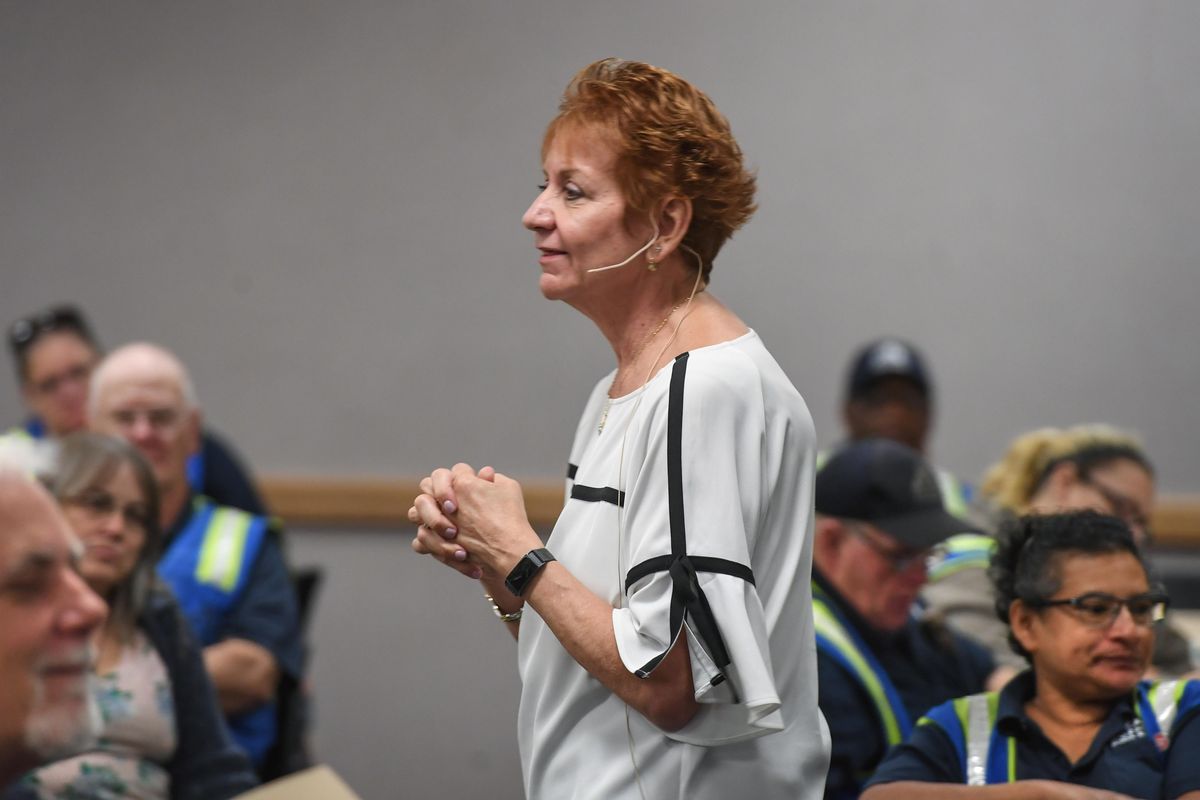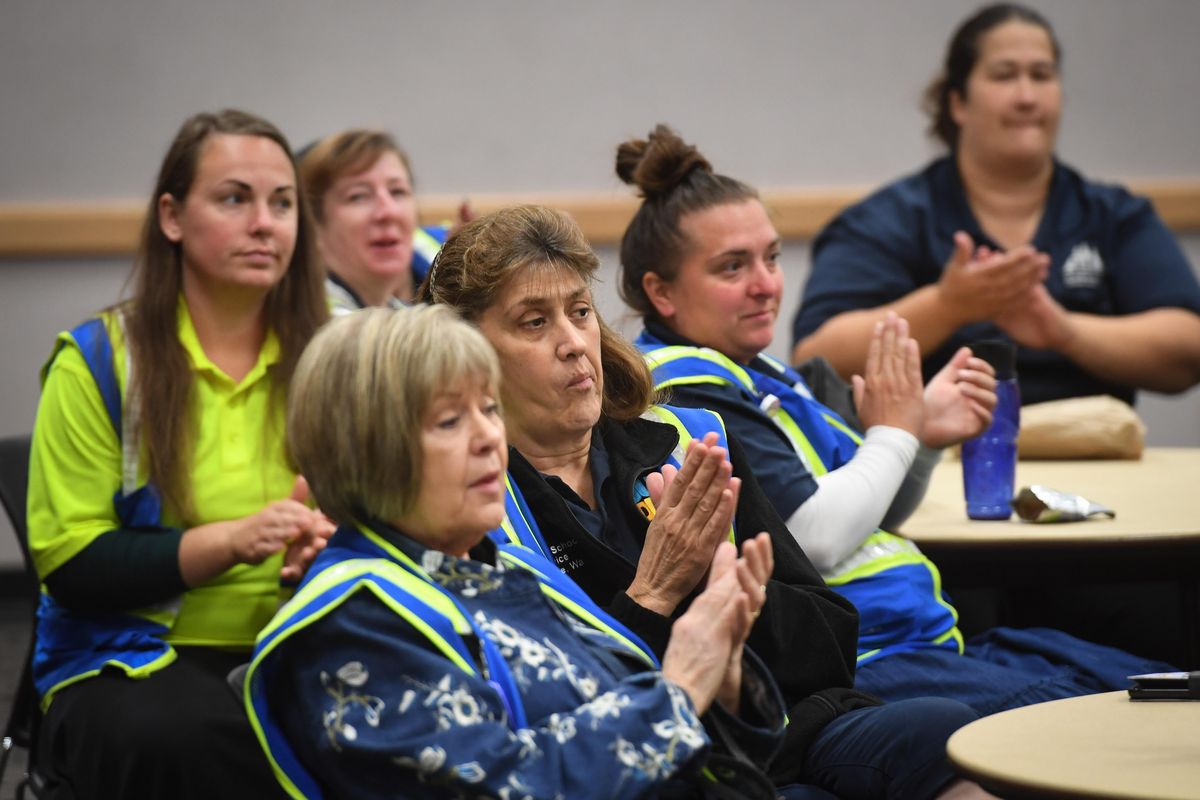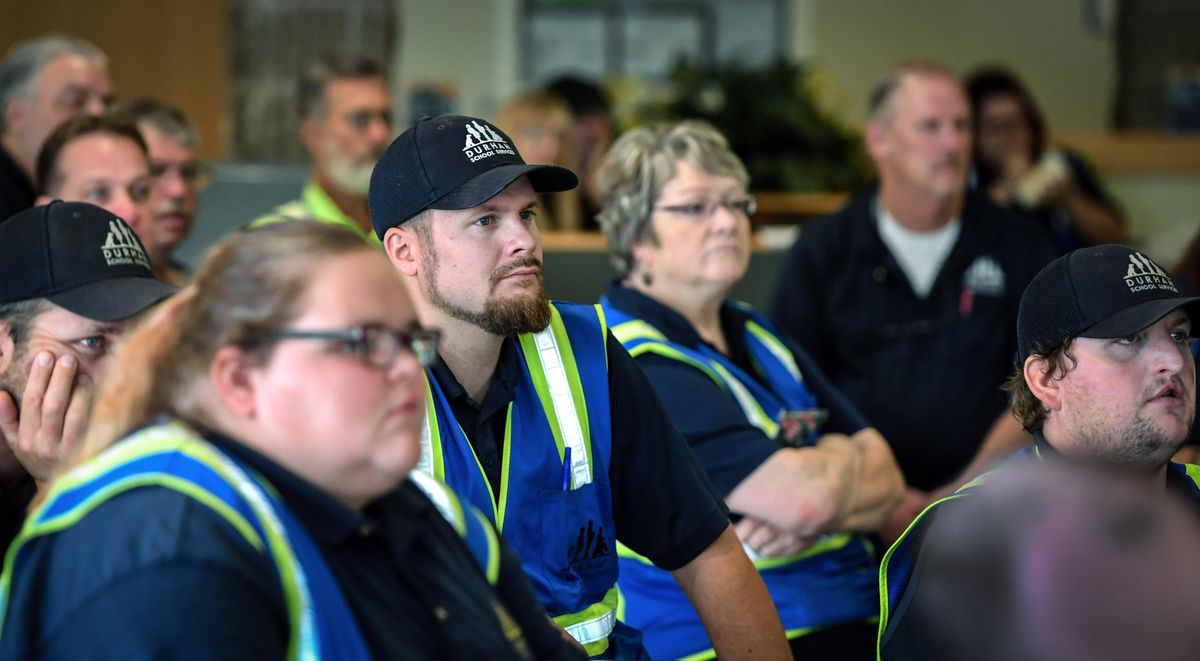School bus drivers learn to turn student conflicts into cooperation
Bus drivers gather for a training class for all Durham School Services drivers in de-escalation tactics Tuesday. A total of around 300 drivers attended the training. (Dan Pelle / The Spokesman-Review)Buy a print of this photo
For hundreds of school bus drivers in Spokane, the message was also an opportunity for introspection: Put yourselves in their place.
On Tuesday morning, the drivers were asked to remember that they were once occupying those bus seats, perhaps disrespecting the driver, each other and generally acting like … kids.
The occasion was a mandatory training session for school bus drivers and how to defuse conflicts.
Officially, its called implementation of “Positive Behavioral Intervention and Supports.” In other words: How to turn confrontation into cooperation and keep everyone safe.
“This is not a science but an art,” said Walt Pegram, a resource officer with Spokane Public Schools and one of the featured speakers for the program. “There are days when it doesn’t always work out, but you have to keep trying.”
No one ever said driving a school bus was easy.
As if navigating a bus through busy traffic isn’t tough enough, drivers must keep two eyes on the road and somehow two more on the dozens of children sitting behind them.
Some of them wake up hungry or angry or worse.
“And they don’t have the same reasoning as an adult,” Pegram said. “The challenge you face is, you are logically approaching things, whereas the juvenile will be operating from the emotional part of the brain.
“We need to step back as adults and understand that most of the pattern they will be on is that other side of the brain,” Pegram added during an event that was the first of its kind for Spokane Public Schools.
The timing was perfect as school begins Thursday.
More than 8,200 Spokane students ride the bus every day. Safety is paramount, a message preached by Pegram and fellow speaker Mary Leonard, of National Express.
Leonard, who speaks to audiences around the country, spoke on the subject of transporting special-needs students. She also has a special-needs child, which resonated with her audience at Spokane Community College, where the Spokane Public Schools training event was held.
“This gives us an insight that we all need to hear,” bus driver Tracy Ulbricht said after hearing Leonard’s presentation. “It’s great to have a parent who can speak to a group like this.”
Leonard spoke about special-needs children whose behavior “needs to be supported, not managed.”
She also left her audience with a nugget: “The way that we see people is the way we treat them. And the way we treat them is the way they become.”
Pegram’s presentation relied on real-life anger situations involving adults. He also engaged in role-playing activities with other staffers, including one in which a mother alleged that her child was being bullied on the bus.
Pegram demonstrated how to interrupt the anger without allowing it to escalate and without surrendering authority.
“Never surrender your authority,” Pegram said.
The major takeaways included positive reinforcement, clear explanation of what behavior is inappropriate and allowing time for the student to make a choice.
“We need to educate the drivers before they get into the school buses with children behind them,” said Michael Warnecke, transportation lead for the district, who noted that some of the drivers are doing this for the first time.
“We want to give them the tools to succeed,” Warnecke said.



